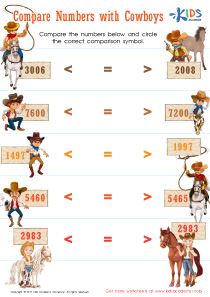Key Ideas and Details/ Craft and Structure Quizzes for 7-Year-Olds
6 results
6 filtered results
Clear all filters6 filtered results
-
From - To
Unveil the world of reading comprehension with our interactive assessment quizzes, meticulously designed for 7-year-olds. Centering on the crucial concepts of Key Ideas and Details and Craft and Structure, these quizzes are ingeniously crafted to evaluate and enhance your child's understanding of texts. Tailored feedback follows each question, aiding in the reinforcement of learning and comprehension skills. Perfect for young learners, our quizzes ensure a fun yet educational journey into the realms of literature. Dive into our assessments and watch your child master the essentials of Key Ideas and Details and Craft and Structure, setting a strong foundation for future reading success.
Interactive quizzes focusing on Key Ideas and Details, as well as Craft and Structure for 7-Year-Olds, are instrumental tools in enhancing children's learning experiences. These quizzes are designed to cater to the curious minds of young learners, ensuring that they grasp the core concepts of their studies in a fun, engaging, and effective manner. In this text, we delve into how these quizzes serve as a pivotal educational resource for children in their developmental years.
First and foremost, quizzes on Key Ideas and Details help children to hone their comprehension skills. At the age of 7, children are beginning to read more complex texts and are learning to identify the main idea, supporting details, and the sequence of events in a story. Through interactive quizzes, children are prompted to think critically about what they have read, to recall details, and to summarize the key points of the text. This not only enhances their reading comprehension but also prepares them for more advanced literacy skills.
Furthermore, the aspect of Craft and Structure is equally important for 7-year-olds. It involves understanding the choices that authors make in presenting their stories or information. This includes recognizing the point of view, understanding the use of images or text features, and identifying the purpose behind a text. Quizzes in this area encourage children to pay attention to these finer details, fostering a deeper appreciation and understanding of different texts. By interacting with these quizzes, children learn to analyze and evaluate texts, skills that are crucial for their academic success.
The interactive nature of the quizzes is what makes them particularly beneficial for children. Unlike traditional methods of learning, interactive quizzes provide immediate feedback, allowing children to understand their mistakes and learn from them in real-time. This instant feedback loop keeps children engaged and motivated, making the learning process more enjoyable and less daunting. Moreover, the interactive element often includes elements of gamification, such as points, badges, or leaderboards, which can further motivate children to participate and excel.
Another advantage of these quizzes is their adaptability to individual learning paces and styles. Children can take these quizzes at their own pace, revisiting questions or concepts that they found challenging. This personalized approach ensures that every child has the opportunity to master the material, irrespective of their initial level of understanding or learning speed. It promotes a sense of independence in learning and encourages self-directed study habits from an early age.
In conclusion, interactive quizzes on Key Ideas and Details, as well as Craft and Structure for 7-Year-Olds, are essential in aiding children's educational development. They not only make learning more engaging and effective but also build foundational skills in reading comprehension and text analysis. By incorporating these quizzes into children's study routines, we can foster a deeper love for learning and set them on the path to academic success.











